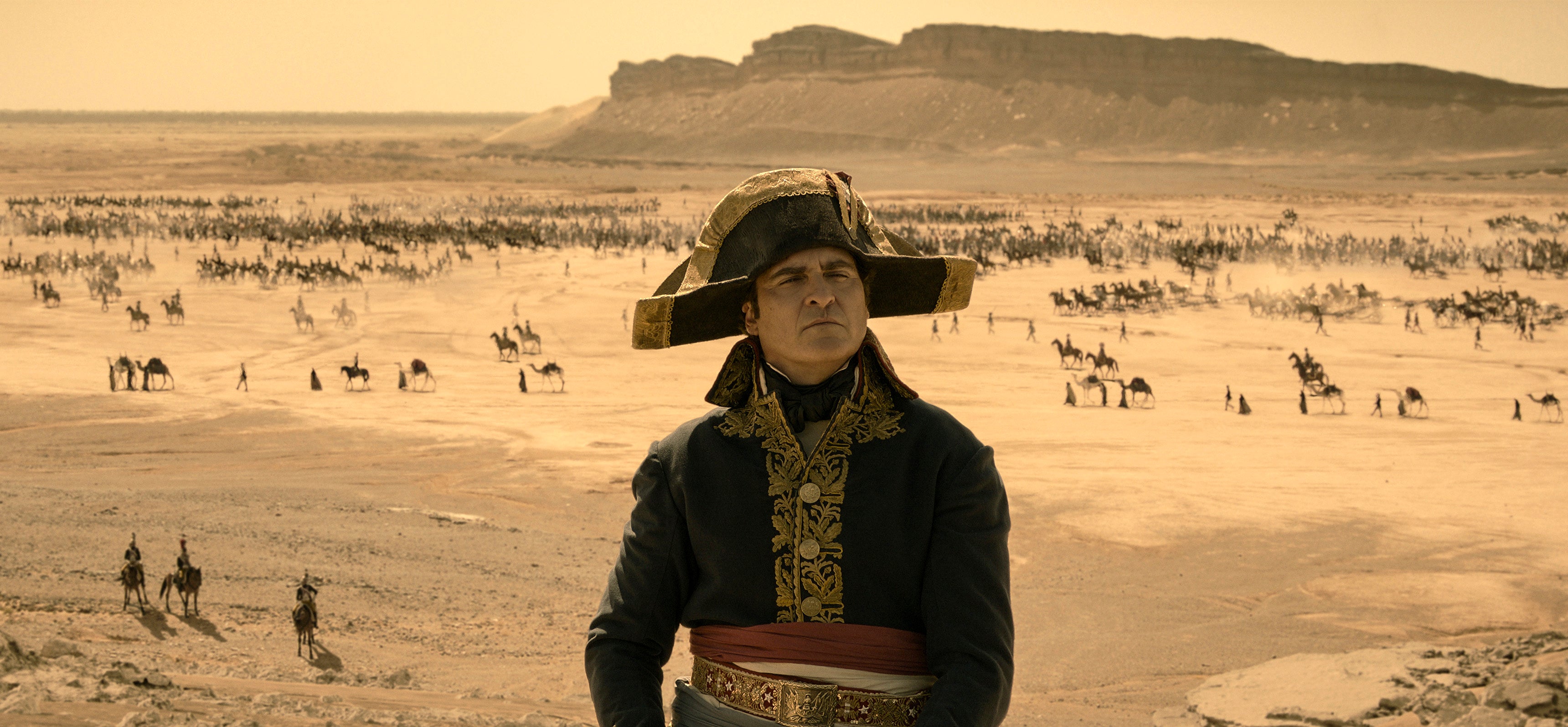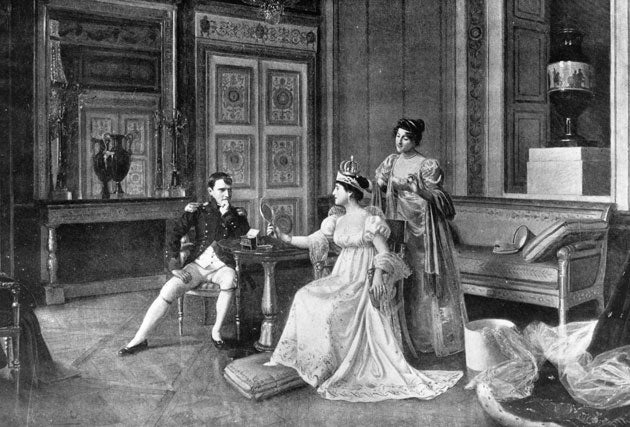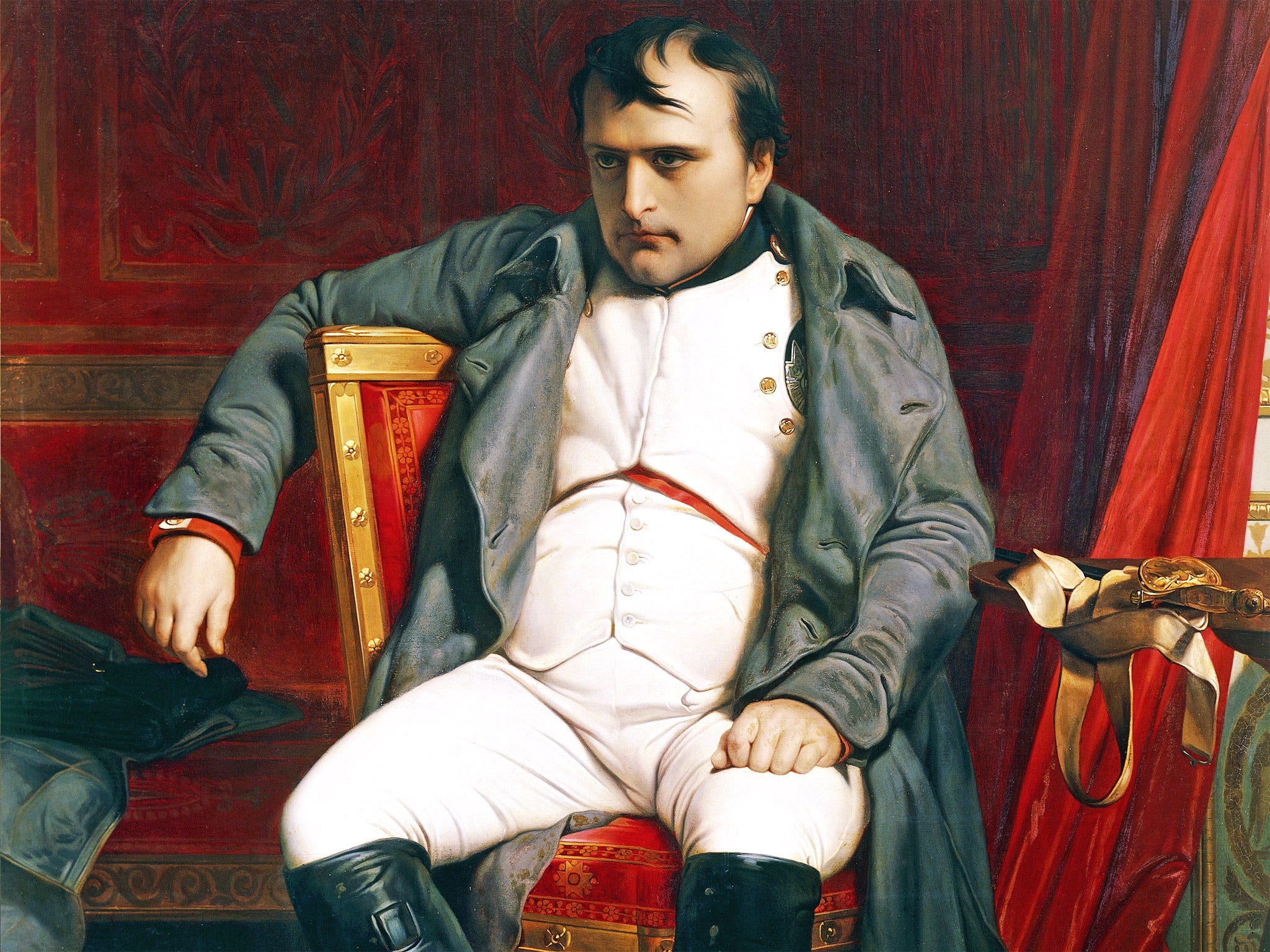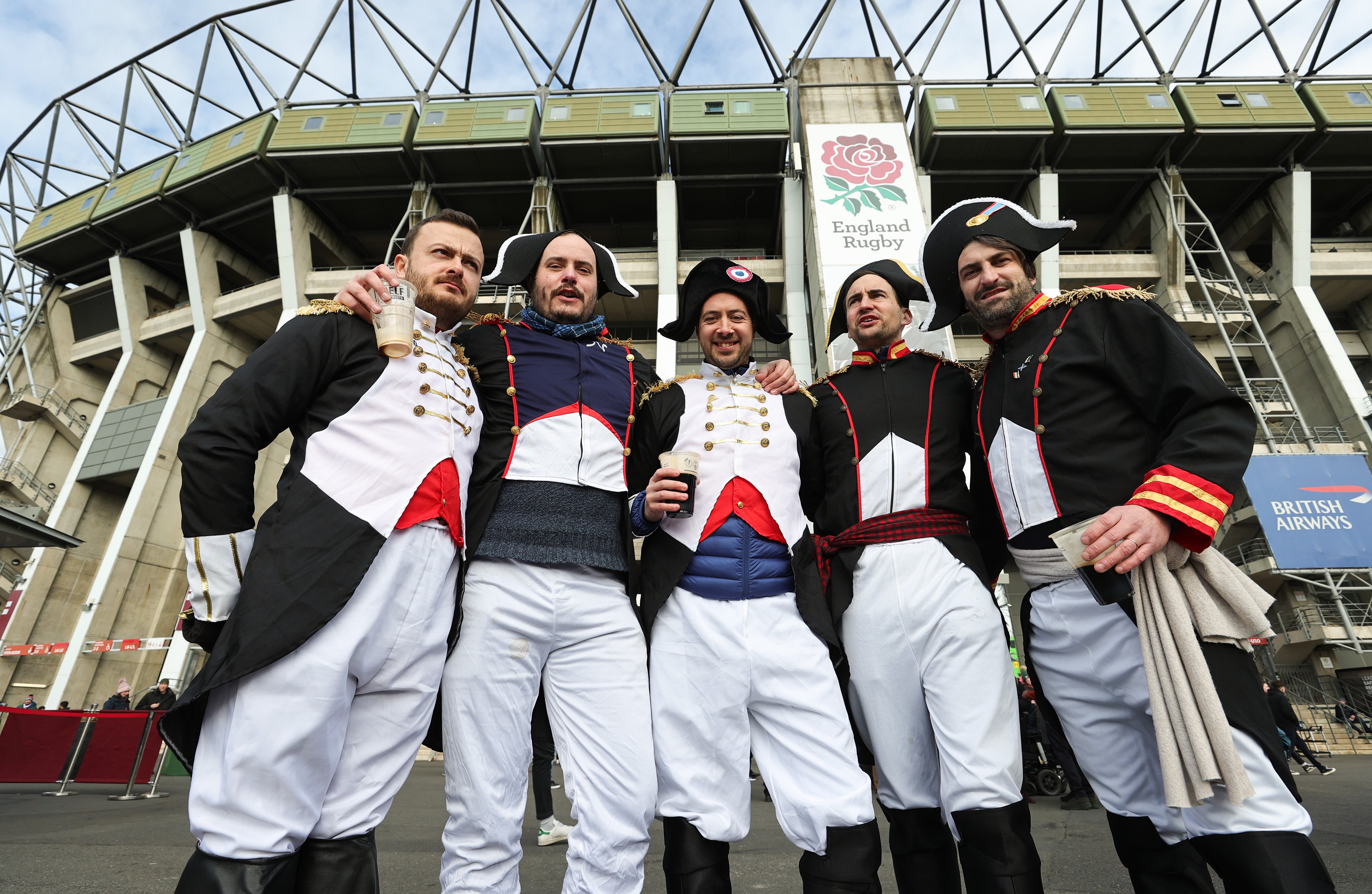Murderous ego maniac or all-conquering hero? The real Napoleon laid bare
The latest version of the Emperor to be brought to the big screen by Joaquin Phoenix in Ridley Scott’s blockbuster is a thuggish Corsican ogre who was a ‘cad to his wife’, according to a horrified home press. He was many things, reveals historian Guy Walters – including not as shrimp-like in size as we like to joke – but, above all, he was just very, very French…


All nations have figures and episodes in their pasts about which they are divided. For the British, it is undoubtedly the empire. While its defenders say that it civilised so much of the world, its detractors state that the empire enslaved it. With the French, the topic that causes the most division is not their own imperial project, but rather that of the character and legacy of Napoleon Bonaparte. For some, the soldier and ruler was a brilliant visionary who made France great, whereas others maintain that he was a tyrant and despot, and France should be ashamed of a man who was little better than Hitler or Putin.
Napoleon is the subject of yet another megabucks biopic that is about to be released. Directed by Ridley Scott and starring Joaquin Phoenix as the big man – or, rather, not-so-big man if stories of Napoleon’s diminutive height are to be believed – and Vanessa Kirby as his empress Josephine, the film explores the couple’s relationship amid the tumultuous backdrop of Napoleon’s rise to power.
While the film has been largely praised by Anglophone critics, some members of the Francosphere are withering about Scott’s epic. French viewers have laid into it, slamming what they see as a litany of historical inaccuracies. Among them is the curator of the army museum at Les Invalides, Emilie Robbe, who has pointed out that Napoleon was not present at the guillotining of Marie Antoinette, and neither did he ride alongside his men in cavalry charges, nor open fire on the Egyptian pyramids.
Other French critics have derided the film for being “anti-French and very pro-British” and for concentrating too much on Napoleon’s relationship with his wife. Le Figaro stated that the figure that emerges is “simple-minded, mediocre and ridiculous”, and furthermore is little more than an “ambitious Corsican ogre, a sullen boor and a cad with his wife”.
Scott hasn’t taken that well to such criticism, and when challenged whether Phoenix, who is 49, is way too old to play a man of half his age, said that he didn’t care and that the interviewer could “tell that to your f*****g historians”. Scott also resorted to that lamest of excuses when it was pointed out that the film was historically inaccurate. “My answer to them is, ‘How do you know? Were you there?’” Of course, such a response negates the whole pursuit of history, and is as fatuous as telling a detective in a murder that he or she couldn’t possibly know the truth. (It’s called evidence, Ridley.) But just as the film is proving divisive, so too is the character of Napoleon himself, a personality that splits France even today. As with the British empire, drawing up the case for the detractors is a fairly straightforward task. Among those who do not have a lot of time for Napoleon is former French prime minister Lionel Jospin, who once told Newsweek that he was “intrigued by the gap between the glory of Napoleon and the actual results he delivered in France and Europe”.

Jospin has a point. While Napoleon certainly enjoyed a lot of military success, when he failed, he failed big time. The Battle of Trafalgar didn’t go so well for Napoleon, and neither did Waterloo. The Peninsula War is estimated to cost half a million French lives alone, a figure that was to be repeated during Napoleon’s absolutely disastrous campaign in Russia in 1812. Such figures would be considered huge even in relation to both world wars a century or so later, but to have lost a million men when the total population of France was just 30 million was clearly absolutely devastating.
Little wonder, then, that the likes of Jospin regard Napoleon as “an obvious failure”, who ultimately left France isolated, diminished, and weakened. In addition, Napoleon’s detractors also claim that by making himself emperor and creating a new aristocracy from his family members, he undermined the principles of the French Revolution, which had, after all, overthrown a profligate monarchy. Furthermore, the expenditure of Napoleon and Josephine on the finer things in life – such as nearly 40 palaces and 54,000 gemstones – made Louis XVI and Marie Antoinette look positively frugal.

Then there is the stark truth that Napoleon died in exile, a defeated shell of a man held thousands of miles away from home in the South Atlantic. He was held in squalid conditions on the island of St Helena, in a house which one of those accompanying him described as “a wretched hovel, a few feet square”, and of which his servants complained of “colds, catarrhs, damp floors and poor provisions”. Along with a plague of rats, little wonder that exile turned the once-mighty Napoleon almost mad. At one point, in an act of rebellion against being constantly monitored by his British captors, Napoleon had all the windows of his house sealed with shutters, into which peepholes were drilled so he could look out, but nobody could look in.
Death was his only release, but even that, at the age of just 51, was wretched, as he suffered for months from severe abdominal pains, either caused by some form of accidental arsenic poisoning or stomach cancer. When one thinks of British national heroes, such as Wellington, Nelson and Churchill, very few died broken and lonely, held captive by our enemies on bleak remote islands. Furthermore, it is even harder to imagine that their penis would have been cut off after their death – as happened to Napoleon’s corpse – and then sold around the world over the following decades. It has often been said that Boney’s, er, boner, is not terribly large, with some saying just around an inch, but then to be fair, most men’s crown jewels aren’t exactly that magnificent post-mortem.
So much for the detractors. There are plenty – millions in fact – in France today who still revere Old Boney, and say that he saved the republic. One of the achievements they point to is the Napoleonic Code, which replaced so much iniquitous feudal law, and which underpins many of today’s laws in so many countries. His fans also stress that Bonaparte was a supremely good administrator, who had the most astonishing eye for detail, to the extent that he even once wrote down the rules for a girls’ boarding school on the eve of a battle. In addition, he established the Bank of France, a national audit office, a system of schooling, and even the metric system.

Of course, it was in battle that Napoleon really did excel, and of the 60 battles he fought, he only lost eight. He won some brilliant victories, of which his finest was that at Austerlitz in December 1805, when he defeated both the Russian and Austrian empires and after which so many streets are named in contemporary France.
But of all his achievements, whether they be military or administrative, Napoleon’s supreme achievement was himself. This was a man who rose from a minor noble family in Corsica to become the emperor of one of the most powerful nations on the planet. The equivalent in Britain would be being born to an obscure but well-to-do family on an island like Jersey, and ending up a mixture of both Queen Victoria and the prime minister.
His ambition was unparalleled. Little wonder that his brother once observed: “He seems to me to be well suited to being a tyrant, and I think he would be, if he were a king, and his name would be one of horror for posterity.” Don’t forget, this was a man who crowned himself emperor. As he was just 5ft 7in, such behaviour could be ascribed to classic small man syndrome, but it should be stressed that Napoleon’s stature was not particularly shrimp-like for his time. In fact, he was of average height, and the reason why he is reputed to have been short is that British cartoonists made him that way; his reported height of 5ft 2in was based on a system of inches that were 2.7cm rather than 2.54cm.

As with the issue of the British empire, the French view of Napoleon is more or less divided down party lines. Those to the right of the political spectrum tend to look at Napoleon as a hero, who created strong institutions and, for much of the time, made France great. Those on the left see him as a tyrant, a man who enslaved people, ruled despotically and ultimately weakened France, and, like Hitler, merely used the country as a vehicle for his own ambition.
Although both sides may never agree on Napoleon’s legacy, there is perhaps one thing that all of France can agree on – Bonaparte was very, very French. He certainly conformed to the stereotype of the typical Frenchman, not least with his intellectual arrogance, his disdain for the British – who he is reputed to have called a “nation of shopkeepers” – and his elastic attitude to marital fidelity.
His relationship with his empress, Josephine, was a textbook example of how a French statesman should behave with his wife. By all accounts, Napoleon felt extremely passionate about Josephine, as his letters reveal: “I hope before long to crush you in my arms,” he wrote in one, while in another, he showed how much he yearned for her: “I shall be alone and far, far away. But you are coming, aren’t you? You are going to be here beside me, in my arms, on my breast, on my mouth? Take wing and come, come.”
And then there was the positively saucy: “A kiss on your heart … and one much lower down. Much lower!”
All this passion did not of course preclude Napoleon from having mistresses, one of whom was the wife of a fellow officer. He is said to have fathered at least two illegitimate children, which is about par for the course for most French politicians. Nevertheless, the infidelity was not one-sided in the Napoleonic marriage, as Josephine had numerous lovers as well. Their marriage, it seems, was just so very French.
Of course, what is moot is whether being typically French is a good or a bad thing. That is a debate that will surely never be resolved.
‘Napoleon’ will be in cinemas from 22 November and will be available to stream on Apple TV+ shortly after its theatrical run






Join our commenting forum
Join thought-provoking conversations, follow other Independent readers and see their replies
Comments